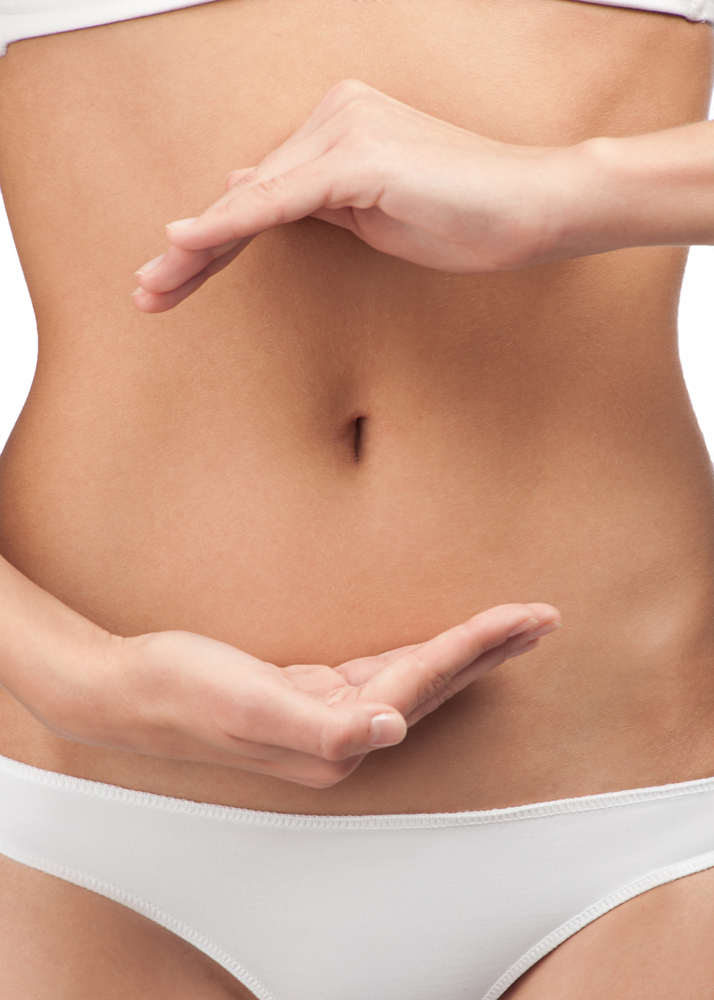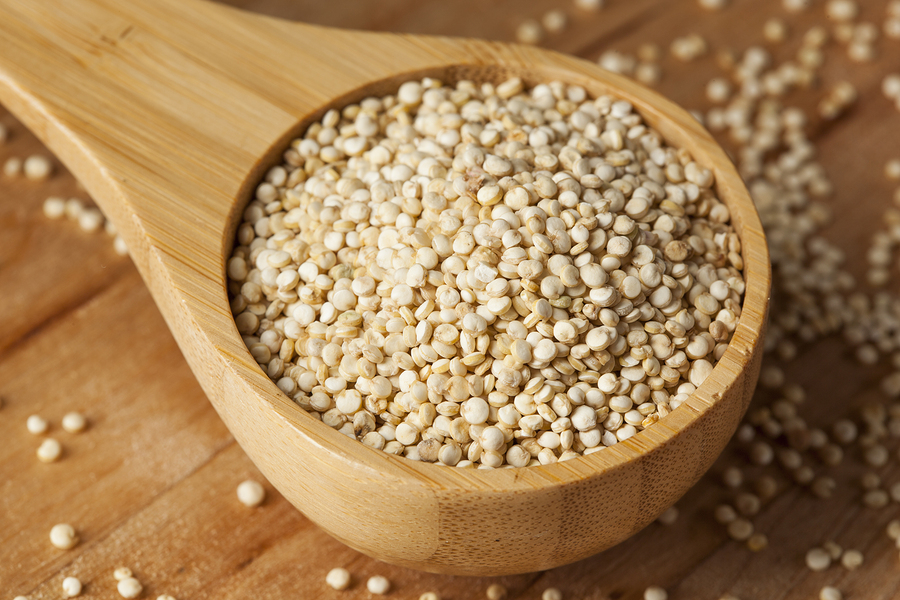75 per cent of women have taken time off for stomach issues such as bloating, cramps and constipation but staggeringly, two thirds of us won’t see our doctors about it. So – we’ve brought Britain’s leading gut experts to you
Problem: ‘I don’t go as often as I’d like’
Expert: THE SPECIALIST
One in five of us complain of constipation but we may be putting undue pressure on our poo habits. ‘Only a third of people have a classic daily movement but anything from going three times a day to only twice a week is normal,’ says Dr Anton Emmanuel, consultant gastroenterologist at University Hospital, London. ‘If your constipation lasts a fortnight or more or you’re always straining, seek help.’ Your doctor should do blood tests to rule out something sinister – sudden weight loss or blood in the stools could be an indication of cancer but this is rare – anaemia or low thyroid function.
For about 40 per cent of people, eating more soluble fibre found in apples, oats, citrus fruits, berries, legumes or ‘guar gum’ (found in over-the-counter fibre powders such as Metamucil) will help. For another one in five, upping their game on toilet habits solves it. ‘Never ignore the urge to go as this can train your bowel towards constipation,’ he says. ‘When you’re on the loo, making your knees higher than your hips by placing your feet on a small stool or pile of books can make evacuation easier.’ Watch OTC laxatives such as senna as these help you go but make pain or bloating worse.
‘A new class of drugs called ‘prokinetics’ now work on the bowel muscle to encourage regularity and help with bloating and pain, something laxatives can’t do,’ he says. Talk to your doctor and if you have tried diet and lifestyle changes ask for a referral to a specialist.

Problem: ‘My tummy goes haywire when I am stressed’
Expert: THE NATUROPATH
You’re not alone – stress plays a huge part in exacerbating symptoms of Irritable Bowel Syndrome or IBS, says Sarah Bowles Flannery, a naturopath and medical herbalist specialising in stomach health. Plus as 95 per cent of the happiness chemical serotonin is made in the gut (not the brain as previously thought) it also works the other way – tummy issues can make you feel lousy emotionally. ‘When people are under stress they don’t make sufficient quantities of digestive enzymes and this can cause IBS symptoms,’ she says.
Try taking enzymes such as Biocare’s Polyzyme Forte £10.55, one at each meal during times of stress, she suggests. For herbal relief of bloating, add 10 drops of gentian tincture to a little water and sip. Try fennel or peppermint tea for trapped wind and for constipation, a teaspoon of slippery elm powder mixed into a glass of water. For stomach cramps a herb known as ‘Cramp Bark’ is a smooth muscle antispasmodic that helps – take ten millilitres in water when you need it (from health food stores). Chewing often suffers when we’re stressed so we miss an enzyme in saliva called phytase essential to digestion. The result: wind. The answer: chew each mouthful 20 times.
Problem: ‘I have Post-Pret bloat everyday’
Expert: THE DIETICIAN
If a latte and Danish get you dreaming of elasticated waistbands you may have a food intolerance to anything from milk to wheat to artificial sweeteners, says dietician Helen Bond. Symptoms can include bloating, wind, diarrhoea and tummy pain but also migraine or eczema and hit slower than those of food allergies that are much less common and can come with swollen lips or even anaphylactic shock. But before you go cutting out food groups, see a pro. ‘A new dietary approach to treating IBS is called the FODMAP diet,’ says Bond. ‘Done under a dietician’s supervision, you eliminate different foods such as milks, artificial sweeteners, certain fruits, grains and some vegetables over eight weeks to work out your IBS triggers,’ she says.
The FODMAP diet has been successful in treating up to three quarters of IBS patients. Some doctors believe up to half the world’s population are intolerant to lactose found in dairy products, says Bond. ‘This can be tested for by your GP using a hydrogen breath test,’ she says. ‘Some people who react with bloating and pain to cow’s milk products don’t have the same reaction to goat’s milk, cheese or yoghurt because it contains lower amounts of the protein alpha S1 casein and is often better tolerated in the stomach,’ she says. For more immediate, natural help 1-2 peppermint oil capsules three times a day before eating have been shown in studies to be as effective as some drugs in helping reduce IBS-related pain, bloating and wind. Try Healthspan Peppermint Oil capsules £10.95.
Problem: ‘There’s dull pain in my lower abs’
Expert: THE GYNAECOLOGIST
Often doctors mistake endometriosis (where tissue that lines the uterus grows on other organs nearby) for IBS, says Dr Gabrielle Downey, consultant gynaecologist at BMI Hospital Birmingham. ‘It strikes about 30 per cent of women over 18 and causes a dull pain deep in the pelvis that can last all month or strike a couple of weeks before your period,’ she says. The pain can radiate to the lower back and groin and sometimes down the legs too. ‘If you also have pain during sex – more in the missionary position and less on all fours – the chances of you having endometriosis are about 70 per cent.’ Your doctor will probably prescribe the Pill to control estrogen that can exacerbate it or if you’ve finished your family, the Mirena coil, a type of contraceptive inserted into the uterus that helps endometriosis.
‘A gynaecologist might also check for Pelvic Inflammatory Disease which might also cause painful sex and gut upset, diarrhoea or bloating,’ she says. Though it’s rare in women under 40, ovarian cancer is routinely mistaken for IBS, she explains. ‘Under new guidelines, if you complain of IBS symptoms such as bloating, cramping, diarrhoea and feeling full too quickly on three occasions over 12 weeks, your doctor has to do a blood test called a CA125 to measure your risk of ovarian cancer. Catching it early means you’re much more likely to survive. Also, if the swelling in your tummy is firm and doesn’t change and you have a family history of breast, bowel or ovarian cancer or cancer of the lining of the womb – with or without pain – get tested’.
Problem: ‘I’ve had the runs for weeks’
Expert: THE GP
Having the runs for a week or so could be down to a tummy bug but when it lasts three weeks or more you may have coeliac disease, says Dr Sohail Butt, a GP in Ashford, Kent, especially if you’re also intensely tired and losing weight. It’s an autoimmune disease that causes an intolerance to gluten found in foods such as wheat, rye, oats and barley but also hidden in foods like soy sauce and ketchup and it’s estimated that about half a million people have it but don’t know (it takes an average of 13 years to get a diagnosis!). ‘If your IBS symptoms are more vague such as abdominal pain or constipation you should still ask your doctor for a test for coeliac disease as it’s often mistaken for IBS,’ he explains.

In some cases, coeliac disease may come with vague symptoms such as intense tiredness alone and only be picked up when a routine blood count shows you’re anaemic as coeliac disease stops the gut absorbing essential nutrients like iron from your food. Good news is, going on a gluten free diet usually means symptoms disappear within a year and gluten-free foods are now available from the chemist on prescription. It’s not that hard either and most fruit, vegetables, proteins and pulses are gluten free as are grains like quinoa, corn and buckwheat. Plus, new labeling guidelines in force from January this year mean anything labeled gluten-free has to be so by law (see coeliac.org.uk). Your doctor might also check for serious stomach illnesses such as Crohn’s Disease and Ulcerative Colitis, especially if you have other symptoms such as blood or mucus in your poo (which you should always tell your doc about).
Problem: ‘Power a wind turbine? No problem.’
Expert: THE NUTRITIONIST
Everyone – even your manicured alpha colleague – have their share of that other f-word. But there’s gas and there’s gas. ‘If you’re passing wind several times an hour whoopy cushion style or less often but with a smell that takes a long time to dissipate you may need to replenish the good bacteria in your intestines with a course of probiotics,’ says Kathryn Marsden, nutritionist and author of Good Gut Healing (Piatkus £14.99). About 500 species of bacteria live in our guts and when not-so-healthy types proliferate – caused by antibiotics, a high sugar diet and stress – they mean particularly smelly wind, along with sudden bouts of constipation or diarhoea and even skin problems such as eczema. One study even found people’s ability to stay lean related to their gut bacteria.
Though some studies show that taking probiotic yoghurt drinks may help, if they’re high in sugar they can exacerbate gas, says Marsden. ‘Plain yoghurt is the best food source as it will contain the good bacteria acidophilus and bifidobacterium,’ says Marsden. If you don’t like the taste, add honey which is a prebiotic. These set the scene – like healthy soil – for good bacteria to grow. Prebiotic foods include crushed linseeds (great in smoothies), almonds, raisins, sunflower seeds, asparagus, artichokes and tomatoes. For excessive gas with bloating and cramping, a course of probiotic supplements could help, she says. ‘As our immune and nervous systems are influenced by our gut health, this helps general wellbeing too,’ says Marsden. Look on the label for not millions but tens of billions of at least four different varieties of bacteria. ‘Choose one that is FOS free. Fructo-oligosaccharide is found in a number of probiotic products but can cause more gas,’ says Marsden. Try Bionutri’s Ecodophilus and Bio-Kult from Protexin (from naturaldispensary.co.uk)
HOW TO TALK TO YOUR DOCTOR ABOUT IRRITABLE BOWEL SYNDROME
It’s not comfortable, but it’s common. One in five of us will experience Irritable Bowel Syndrome (IBS), an umbrella term for symptoms such as tummy pain, bloating, wind, constipation or diarrhoea. Don’t be shy, one in ten of your GP’s patients comes in with IBS type symptoms! Here’s how to broach it:
1. Be specific – We know, embarrassing. ‘Don’t say ‘I’ve got a bit of discomfort, itemise your symptoms – how often you get them, what happens when you go to the loo, what it feels like to pass your stools? Is there pain? When in the day and month notice the most bloating?’ says Dr Anton Emmanuel.
2. Explain the effects – Tell your doctor how it affects your life. ‘Be clear about the times and events that flare up your IBS and whether you avoid social outings because of it,’ he says. It may help to keep a symptom diary recording where you went, what you did and ate and how your tummy reacted for a month and take it in with you.
3. Get historical – ‘Mention any treatments you’ve tried and what happened. Whether you borrowed your mother’s senna or tried something in the bathroom cabinet are essential clues for your doctor,’ he advises.
For more information and an on-line self-management programme to use with your doctor log on to ibsnetwork.org
Like this article? Sign up to our newsletter to get more articles like this delivered straight to your inbox.





















































